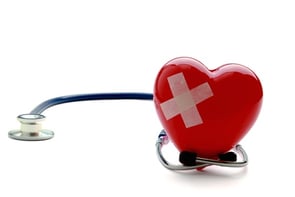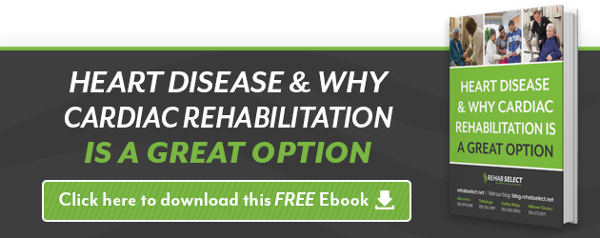 According to research, cardiac arrest affects 1,000 people a day and is deemed a national health crisis. What’s behind this startling statistic? Untreated heart disease is rampant in the United States.
According to research, cardiac arrest affects 1,000 people a day and is deemed a national health crisis. What’s behind this startling statistic? Untreated heart disease is rampant in the United States.
According to the American Heart Association, cardiovascular disease (CVD) remains the leading cause of death in the U.S, accounting for 928,741 deaths in the year 2020. There are 2,396 deaths from CVD each day, which means that, on average, someone dies of CVD every 36.1 seconds in the U.S.
Considering these eye-opening numbers, you may wonder how to avoid becoming a statistic. Whether you are in perfect health or recovering from a cardiac event, now is always the right time to enact these heart-healthy practices. The good news is that there are several ways to help prevent cardiovascular issues like stroke and heart attack, and, in some cases, even ways to reverse damage that may already exist. The bad news is that, for those at risk, much of the protection comes in the form of serious lifestyle changes, and these changes aren’t always easy.
How to Prevent Cardiac Arrest
One way to start making significant lifestyle adjustments is called "leaning in." Leaning in means taking baby steps toward change: one small lifestyle alteration at a time, spread out over the course of weeks or even months.
1. Quit (or never start) smoking
Most people would say that they know how detrimental smoking can be to your entire body. Tests have proven that even breathing in secondhand smoke can have devastating consequences, especially for children. If quitting "cold turkey" isn't working for you, talk to your doctor. There are many over-the-counter and prescription aids available to help you quit.
The benefits of avoiding cigarettes and tobacco are immediate: lowered blood pressure, improved lung function and circulation, and lower risk of heart disease. In fact, research indicates that the cardiovascular risk of smoking is reduced to half after one year of smoking abstinence.
2. Regain a healthy body weight
If you need to lose weight to reduce your risks for heart disease, there is no time like the present to get started! According to the American Heart Association:
“Those who sustained a loss of 10 percent or more of their body weight for two years reduced their total cholesterol, LDL “bad” cholesterol, HDL “good” cholesterol, triglycerides, insulin, glucose and inflammation markers. Women with the highest risk benefited the most from modest weight loss.”
Consult with your doctor or join an exercise or weight loss community, and remember not all weight loss is equal. Some research indicates that losing fat mass, but not lean mass, is key for heart health in obese patients with type 2 diabetes.
3. Get moving
When you move, you send more needed oxygen to all your cells, improve circulation, and increase muscle function, especially in your most important muscle: your heart. As Harvard Health reports, “Physical activity triggers changes in your blood vessels, muscles, metabolism, and brain — all of which promote better heart health.”
It’s easy to track the amount of movement that you are accomplishing these days, from free smartphone apps to affordable pedometers to wearable fitness trackers. Aim for 10,000 steps a day. A study published by the Journal of American Medical Association Internal Medicine explains that walking around 10,000 steps a day appears to be linked to less cardiovascular disease overall, with less heart disease, less heart failure, and fewer strokes. That distance may seem overwhelming at first, so experts recommend any increase is better than none. You will find that by taking the stairs or parking a little further away from the supermarket door, those steps quickly add up.
4. Keep your blood sugar and cholesterol in the normal range
Over time, high blood sugar can damage blood vessels and the nerves that control your heart. Experts agree that people with diabetes are more likely to have other conditions that raise the risk for heart disease: High blood pressure increases the force of blood through your arteries and can damage artery walls. Be sure to make your doctor aware that you’re choosing to start making healthy changes to your lifestyle.
5. Maintain a healthy diet
Eating a diet high in saturated fats, trans fats, and cholesterol has been linked to heart disease and related conditions, such as atherosclerosis. The good news is that diet is something you can influence. Striving to include more home-cooked, veggie-filled, low-fat meals in your diet is a good start. In fact, the Mayo Clinic recommends the following to ensure your eating habits and meals are heart-healthy:
- Control your portion size
- Eat more vegetables and fruits
- Select whole grains
- Limit unhealthy fats
- Choose low-fat protein sources
- Limit or reduce salt
- Plan ahead with daily menus
- Occasionally allow yourself a treat!
Starting Rehab After Cardiac Arrest
At Rehab Select, we provide five cardiac rehab locations in Alabama with an individualized, physician-led program to improve your heart health and quality of life. Our team of medical professionals and therapists can guide you through the phases of cardiac rehab and help you achieve your cardiac rehab goals. Our approach is guided by a progressive schedule of supervised physical and occupational therapy designed to return you to daily living.
We’ll also help you build long-term heart-healthy habits to maintain your progress even after recovery. To learn more about our Alabama cardiac rehab centers or schedule a tour, book a meeting today!




